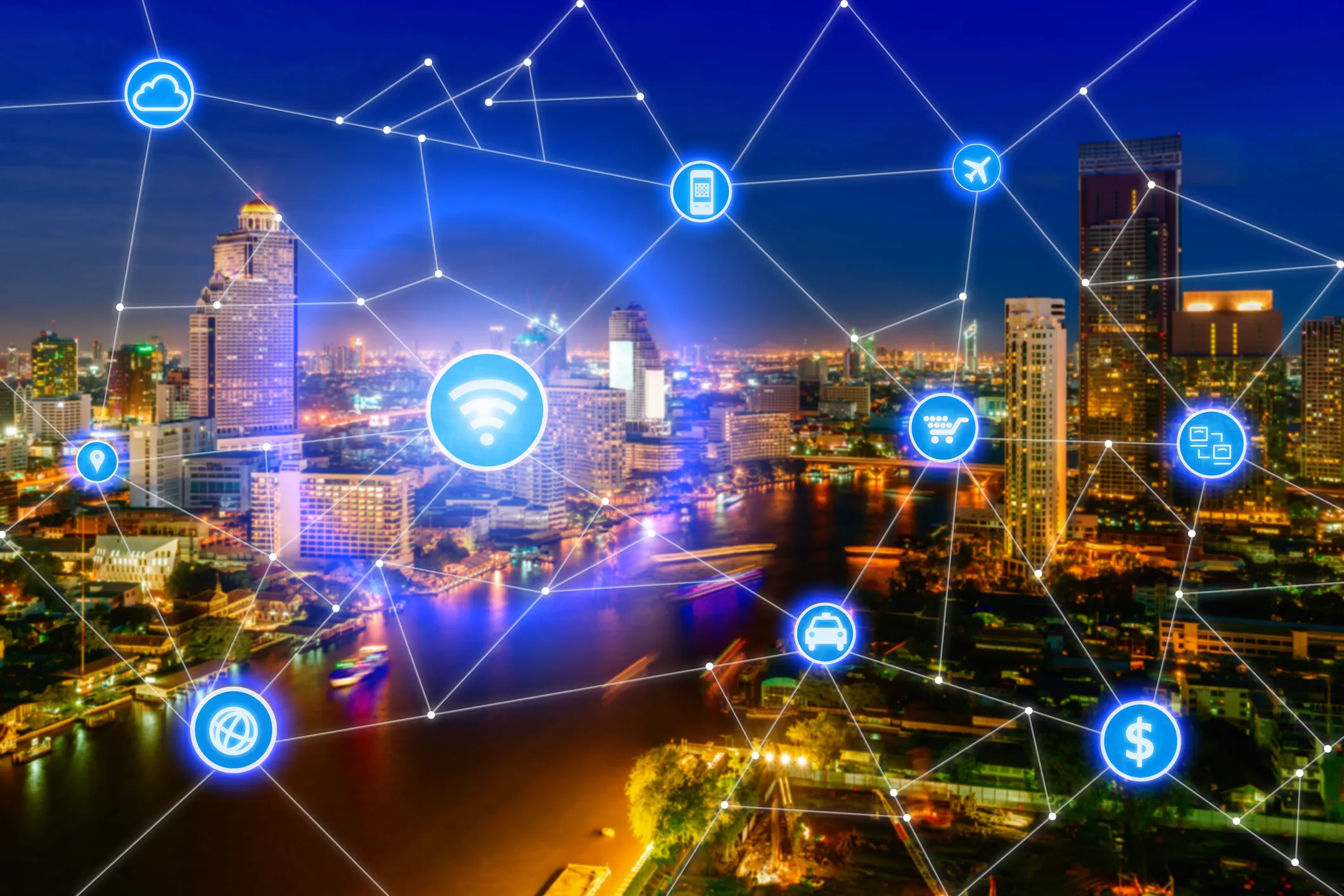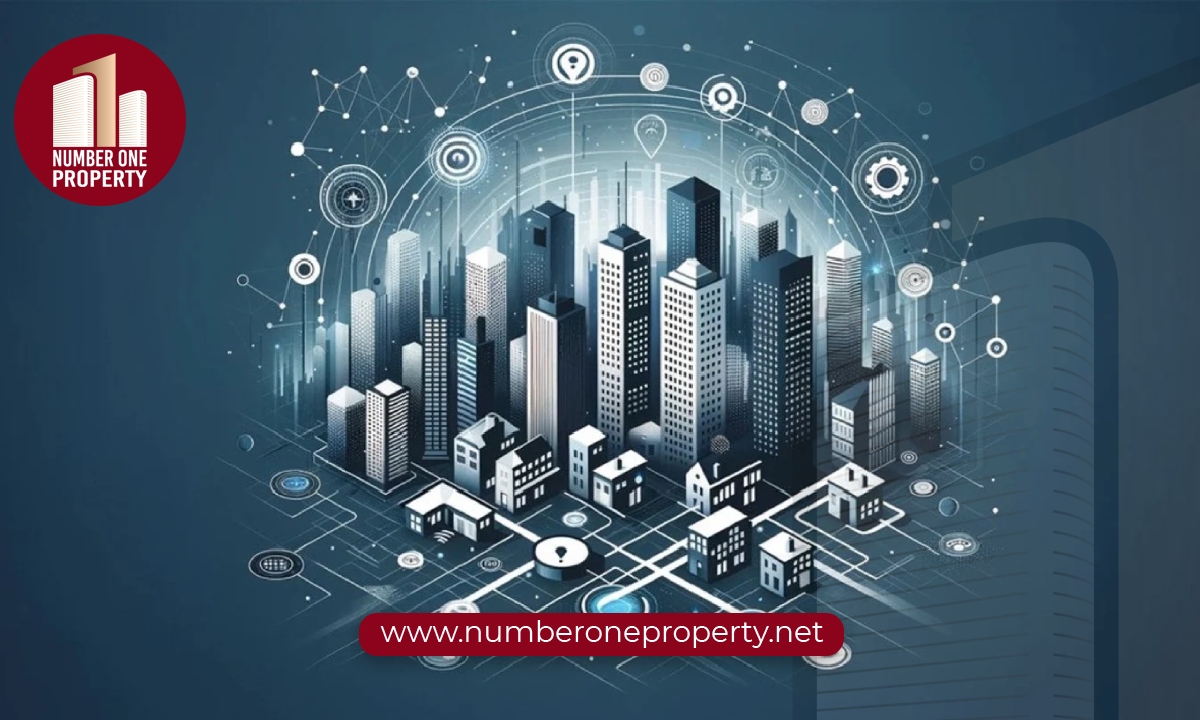How Technology is Shaping Urban Development? In recent years, the concept of "smart cities" has emerged as a transformative force in urban planning and real estate development. As technology advances, cities worldwide are integrating innovative solutions to create more efficient, sustainable, and livable urban environments. These smart technologies are revolutionizing how cities function and creating new opportunities and challenges for the real estate sector. In this article, we will explore the role of smart technologies in urban development, how they are reshaping real estate, and the potential implications for the future.
The Evolution of Smart Cities

Smart cities leverage cutting-edge technologies such as the Internet of Things (IoT), artificial intelligence (AI), big data, and advanced communication networks to enhance the quality of urban life. The goal is to create cities that are more responsive to the needs of their residents, more sustainable in their use of resources, and more efficient in their operations.
Key components of smart cities include:
- IoT and Connectivity : Smart cities rely on a vast network of connected devices and sensors that collect and transmit data in real-time. These IoT devices are embedded in various urban infrastructures, including transportation systems, energy grids, and public services, enabling cities to monitor and manage resources more effectively.
- Big Data and Analytics : The data collected by IoT devices is analyzed using advanced analytics to gain insights into urban patterns and trends. This data-driven approach allows city planners and developers to make informed decisions, optimize services, and predict future needs.
- Artificial Intelligence : AI plays a crucial role in automating processes and making cities smarter. For example, AI-powered traffic management systems can optimize traffic flow, reduce congestion, and improve overall mobility in urban areas.
- Sustainable Infrastructure : Smart cities prioritize sustainability by incorporating green technologies such as renewable energy, energy-efficient buildings, and smart water management systems. These initiatives help reduce the environmental impact of urbanization.
Impact of Smart Cities on Real Estate Development
Integrating intelligent technologies into urban planning significantly impacts the real estate sector. As cities become more competent, real estate developers and investors must adapt to new trends and demands, leading to opportunities and challenges.
1. Increased Property Value
One of the most notable impacts of smart cities on real estate is the potential for increased property value. Properties in smart cities or areas with advanced technological infrastructure tend to command higher prices. This is because smart cities offer enhanced living conditions, better connectivity, and more efficient public services, making them highly desirable for residential and commercial purposes.
For instance, real estate developments incorporating smart building technologies—such as automated lighting, energy management systems, and smart security—increasingly appeal to buyers and tenants who prioritize convenience, sustainability, and security. As a result, these properties often enjoy higher demand and better long-term value.
2. Sustainable and Resilient Development
Smart cities place a strong emphasis on sustainability, which is influencing real estate development practices. Developers are increasingly adopting green building standards and sustainable design principles to align with the goals of smart cities. This includes using eco-friendly materials, energy-efficient technologies, and designs that reduce the carbon footprint of buildings.
Moreover, smart cities promote resilience in the face of climate change and other challenges. Real estate developments incorporating adaptive infrastructure—such as flood-resistant designs, smart grids, and sustainable water management systems—are better equipped to withstand environmental stresses, ensuring long-term viability and attractiveness.
3. Enhanced Urban Mobility and Accessibility
Integrating intelligent transportation systems in cities transforms urban mobility, making it easier and more efficient for residents to move around. Real estate developments near smart transportation hubs, such as intelligent public transit systems or autonomous vehicle routes, are becoming increasingly valuable.
For example, smart cities often feature enhanced public transportation networks with real-time tracking, automated ticketing, and optimized routing. These developments reduce commute times and improve accessibility, making nearby properties more attractive to buyers and renters. Additionally, the rise of shared mobility services, such as bike-sharing and ride-hailing, further enhances the appeal of real estate in well-connected urban areas.
4. Data-Driven Urban Planning
Smart cities leverage big data and analytics to inform urban planning and development decisions. This data-driven approach allows for more precise and effective real estate development, as planners and developers can better understand residents' needs and preferences.
For instance, data on traffic patterns, energy consumption, and public space usage can guide the placement of new developments, ensuring they are located in areas with optimal accessibility and demand. Additionally, data analytics can help identify emerging trends and potential growth areas, enabling developers to make strategic investments.
5. Challenges for Real Estate Developers
While smart cities offer numerous opportunities for the real estate sector, they also present several challenges that developers must navigate.
High Initial Costs : Implementing innovative technologies in real estate developments can be costly, requiring significant upfront investment in infrastructure, technology, and skilled labor. Developers must carefully consider the return on investment and the long-term benefits of integrating these technologies.
Regulatory Compliance : As smart cities evolve, governments and municipalities may introduce new regulations and standards related to smart infrastructure, sustainability, and data privacy. Real estate developers must stay informed about these regulations and ensure compliance, which can complicate the development process.
Technological Obsolescence : Rapid technological advancement means that smart city technologies can quickly become outdated. Developers must plan for future upgrades and consider the long-term viability of the technologies they incorporate into their projects.
Future Implications for the Real Estate Sector

As smart cities continue to grow and evolve, their influence on the real estate sector is not just expanding, but also promising significant growth. Several key trends and implications for the future include:
Smart Home Integration : The rise of smart homes, equipped with IoT devices that automate and enhance daily living, will likely become a standard feature in new real estate developments. This will further increase demand for properties that offer advanced technological amenities.
Mixed-Use Developments : Smart cities encourage the development of mixed-use spaces that combine residential, commercial, and recreational areas. These developments create vibrant communities where residents can live, work, and play within proximity, reducing the need for long commutes and enhancing quality of life.
Focus on Well-Being : Smart cities are increasingly prioritizing the well-being of their residents, with real estate developments incorporating features such as green spaces, wellness centers, and intelligent healthcare facilities. These features are becoming essential selling points for modern real estate.
Global Expansion : As intelligent cities gain traction worldwide, real estate opportunities will likely emerge in both developed and developing markets. Investors and developers must explore new regions and adapt to cultural and regulatory environments.
Conclusion
Smart cities represent the future of urban development, offering a vision of cities that are more connected, efficient, and sustainable. For the real estate sector, this presents both exciting opportunities and complex challenges.
As technology continues to shape the way we live and interact with our urban environments, real estate developers, investors, and planners are not just observers, but key players in this transformation.
They must stay ahead of the curve, embracing innovation while addressing the evolving needs of modern cities. By doing so, they can contribute to the
creation of smart cities that enhance the quality of life for residents and drive long-term value for the real estate industry.
Read Also:
The Intersection of Art and Real Estate
The Future of Smart Homes: Top Features Buyers Are Looking For in 2024


